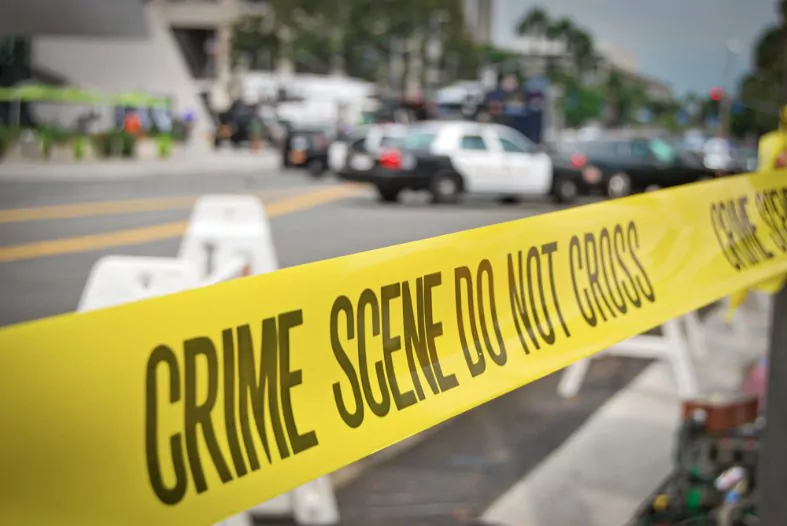Exploring the Encounter Meaning in Police Enforcement

In the realm of law enforcement and criminal justice, there is a range of terminologies, codes, and jargon that often seem perplexing to the common man. The term “encounter” is one such term that generates diverse sentiments among different communities across the world. So, what is an encounter? How does it fit into the broader context of policing? And what are the ethical, legal, and procedural considerations related to it? In this blog, we will unravel the Encounter meaning in police and explore its implications in the realm of law enforcement.
1 What is an 'Encounter' in Police Jargon?
Before we plunge into the intricate intricacies of ‘encounter’ in policing, it’s vital to clarify the term’s definition. The question that naturally arises is, “what is encounter?” In essence, an ‘encounter’ refers to a situation where law enforcement personnel engage with individuals suspected of criminal activities. This confrontation often results in injuries or, unfortunately, the death of the suspect(s).
Such incidents, commonly shrouded in controversy, are typically the consequence of perceived immediate threats or danger to the police, triggering a retaliatory action. It’s crucial to note, though, that ‘encounter’ is not a term officially recognized in any legal documentation. Instead, it has colloquially evolved within the police and media circles to articulate these specific incidents.
2 Detailed Analysis of the 'Encounter Meaning in Police'
To understand the ‘Encounter meaning in police’, we need to delve into the nuances that envelop these interactions. Encounters are essentially confrontations that occur between law enforcement officers and individuals alleged or suspected to have engaged in criminal activities. Such engagements often transpire when the police, in carrying out their duties, perceive imminent danger from the involved individuals, resulting in the use of force.
Regrettably, these encounters sometimes result in fatalities, primarily of the suspects. However, it’s vital to underline that these are not premeditated acts of violence by the police but rather, often, reflexive actions triggered by perceived immediate threats.
3 Encounters – A Legal Perspective
Despite being a common term in media reports and police circles, ‘encounter’ does not find mention in any legal texts. Consequently, there are no clearly defined legal guidelines dictating how these encounters should be handled. This lack of explicit legal framework leads to grey areas and has sparked countless debates about the lawfulness of such incidents.
Legally, the police are justified to use force, even deadly force, if they reasonably believe that their lives or the lives of others are in immediate danger. This legal provision, known as ‘self-defence’ or ‘private defence’, is the primary justification provided for these encounters.
However, the challenge is to ensure that this provision is not misused. There have been instances where encounters have been allegedly staged to bypass the legal system, leading to concerns about extrajudicial killings. It is a thin line that needs to be navigated with utmost care to ensure that justice isn’t miscarried.
4 Encounters – Ethical and Social Perspectives
Exploring the ‘Encounter meaning in police’ is incomplete without considering the ethical and social dimensions. On one hand, encounters can be seen as a necessary measure in exceptional circumstances to protect society from dangerous criminals, especially when they pose an imminent threat to the public or the police.
On the other hand, human rights activists argue that every individual, regardless of their alleged crimes, has a right to a fair trial. Any act of violence, particularly resulting in death, without judicial oversight, raises significant ethical concerns.
The public perception of encounters is polarized. For some, it is seen as swift justice, while for others, it represents a potential violation of human rights.
5 Procedural Aspects of Encounters
Given the sensitive nature of police encounters, they are governed by a strict procedural framework. The National Human Rights Commission (NHRC) of India, for example, has issued specific guidelines that police are expected to follow during and after an encounter. These include reporting the incident promptly to local authorities, ensuring a thorough and independent investigation, and providing just compensation to the victim’s family in case of a violation.
Similar guidelines exist in other countries, underscoring the importance of transparency, accountability, and human rights in policing.
6 The Societal Perspective on Police Encounters
Public opinion on encounters tends to be polarised. Some view them as necessary tools for combating crime and maintaining law and order, especially in areas plagued by violence and lawlessness. Others, however, see them as a blatant abuse of power, often used to oppress marginalised communities or silence dissent.
This divergence in views highlights the need for ongoing dialogue and education around the “Encounter meaning in police.” Society needs to strike a balance between ensuring public safety and upholding the rule of law.
7 Wrapping Up: Towards Ethical Policing
As we delve into the encounter meaning in police, it’s clear that encounters are a complex, multi-faceted issue. They encompass a broad spectrum of legal, ethical, and societal considerations that demand careful reflection.
Understanding encounters, their implications, and their place in our justice system are critical to fostering dialogue around police reform and accountability. We must continue to interrogate and scrutinise these practices, ensuring they are used judiciously and responsibly.
Ultimately, the goal should be to move towards a model of policing that prioritizes human rights, transparency, and accountability, balancing the need for public safety with respect for the rule of law. This approach ensures that the encounter meaning in police does not equate to an abuse of power but is a demonstration of responsible law enforcement in the face of real and immediate threats.
In sum, the encounter meaning in police is a pivotal topic in the discourse on law enforcement and human rights. It underscores the need for continued scrutiny, dialogue, and reform in the policing sector, paving the way towards more ethical, transparent, and accountable law enforcement practices.
Community Q&A
About This Article
This article has been viewed 427 times.



